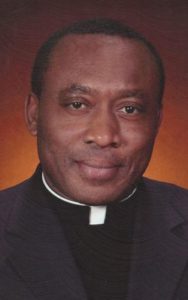When President George Washington, in 1789, recommended and assigned Thursday the 26th of November as Thanksgiving Day, and when President Abraham Lincoln proclaimed a national Thanksgiving Day, to be celebrated on the final Thursday in November 1863, both presidents, in their declaration, saw the act of thanksgiving as not just limited to giving thanks, but also as a time to seek God’s forgiveness for our communal sins, and a call to the responsibility of creating a peaceful, more just and equitable world. This is very interesting because both presidents saw thanking God for our blessings and good fortunes as intrinsically tied into reconciliation with God and to the greater responsibility of being benefactors to a world in great need of our kindness, goodness and mercy.
So the act of thanksgiving involves the act of reconciliation with God, which involves the act of reconciliation with self and neighbor. No wonder Scriptures says that if you are coming to the altar, to bring your gift-offering and remember that you are in enmity with your brother or sister, you should drop your offering, go and get reconciled and then comeback and offer your gifts. What this means is that offering thanksgiving to God with an unreconciled heart is not an act acceptable to the Lord. So, let us forgive and be forgiven if we want to celebrate a true thanksgiving.
Also the act of thanksgiving, according to these two presidents, involves reaching out to suffering humanity. Therefore, as we gather around the tables to eat, drink, and celebrate, let us remember and pray for those with little to eat and commit ourselves to caring for the hungry among us. As we give thanks for our relatives and friends, let us remember and pray for those who are alone and forgotten, and commit ourselves to doing something about it. As we thank God for our freedom and the pursuit of happiness, let us remember and pray for those silenced by the weight of violence, harsh rule, and oppression and commit ourselves to do all in our power to pursue justice, fairness, and equality for all. We can always begin from our families and neighborhoods.
My friends, the greatest act of thanksgiving is to recognize our responsibility to bring positive change in our world and this we can do by initiating little, daily, unexpected, undeserved acts of love, compassion, grace, and forgiveness towards self and others. While emotions like anger, hatred, disappointment, failure, and frustration will always be part of this life, the act of thanksgiving requires that we should never let them become our default emotions. We need to constantly choose to live life from a place of gratitude because this is how we can remain in a state of peace, happiness, and joy.


